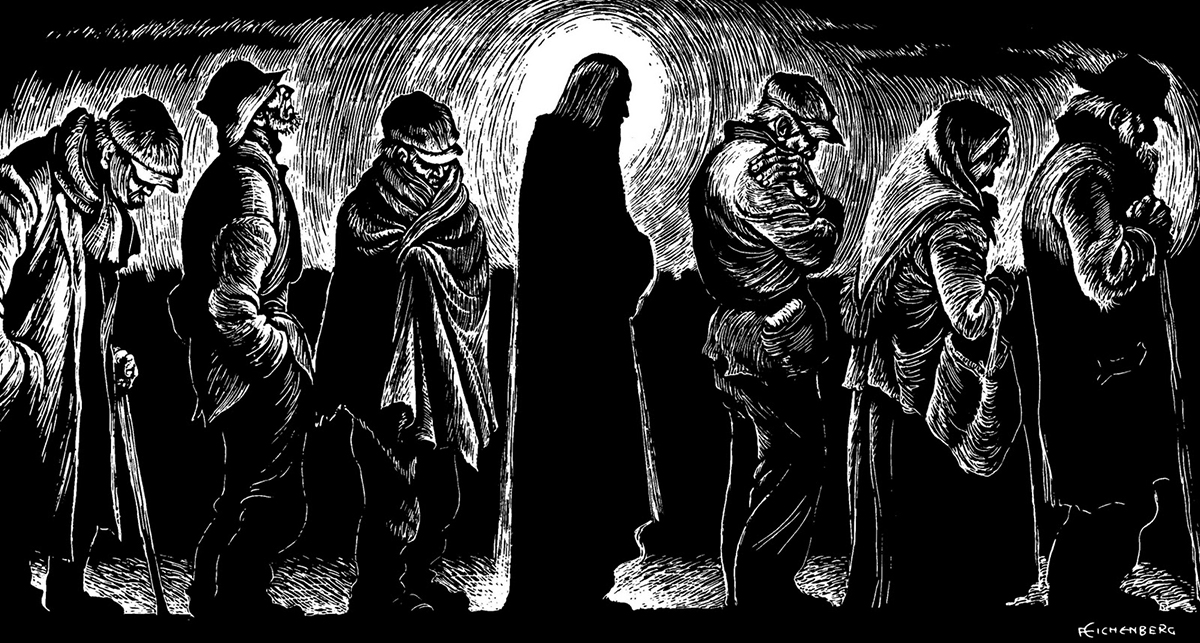Anger, Peace, and God’s Mission
Posted 11/14/2016 in Responses To World Events

On a number of occasions I have had a student, staff member, or faculty member sit in my office with fists clinched or teeth gritting as they describe an issue they are concerned about. Occasionally I will stop, look in their eyes, and make the observation: “You seem to have a lot of anger . . . where do you think that is coming from?”
Anger comes from somewhere.
However, when anger begins to control our thoughts, our idle moments, and our conversations, we seldom have the ability to stop and reflect on a question like this: where is our anger coming from. If we do, our immediate response is usually a self-justification. We blame someone who did something to us; we identify circumstances that have trapped us or people who refuse to recognize us. Most anger (at least in our own minds) is justified. We are mistreated. We have been misunderstood. Or (in my case) anger rises when I feel mistreated or unjustly dismissed.
I still struggle with anger, but I made a turn in my understanding of my own anger, the anger of others, and the general global angst today by listening to some of the early church ascetics. One of my favorites is actually called “Mark the Ascetic.” Listen to his wisdom (taken here from his “Letter to Nicholas the Solitary,” translated and edited by Palmer, Sherrard, and Ware) and then let me say why I think this is helpful for our age:
Now let us say something about the senseless passion of anger, which ravages, confuses and darkens every soul and, when it is active, makes those in whom it is easily and quickly aroused behave like beasts. This passion is strengthened particularly by pride, and so long as it is so strengthened it cannot be destroyed. While the diabolical tree of bitterness, anger and wrath has its roots kept moist by the foul water of pride, it blossoms and thrives and produces qualities of rotten fruit. Thus the structure of evil in the soul is impossible to destroy so long as it is rooted firmly in pride.
Pride fuels anger. Pride is expressed as control; being able to control your day, your life, your schedule, even your community. When you no longer have control, you (we) get angry.
There is a lot of anger in the world today. I suspect it has always been that way since anger is fed by pride or self-will, which is a good description of original sin. However, in the past few decades it seems that anger caused by a loss of control has spun out of control globally. Religious violence—whether in Northern Ireland or in the Islamic world—is based on a fear of losing control of the community, the future for one’s religion in a confusing and mixed world. Without going into much detail, we can probably see that globalization is a very threatening process to most traditional and traditionalist cultures. I believe that the rising anger we are seeing is not unrelated to globalization. Muslims viewing Hollywood movies in the Middle East and Christian churches now functioning as mosques in Detroit are images of this process.
Whether it is Muslims in Pakistan resisting modernity, Britons resisting the EU, or Turks resisting Kurds, the sense of change and loss of control tends toward anger. I believe our struggle is to square our concern for justice with our concern for peace: it is first a very personal struggle of the human heart. Many of the issues that raise anger in us are issues of injustice. Many of the people who increase our anger are angry people. They demonstrate racism, classism, misogynism, or they are just plain bullies. “Their behavior must not be tolerated!” we think. As soon as we go down that line of thinking, however, we are being made into the very image of that which we loathe. Racists seem to be angry people. Very soon we become angry at them and soon we are just as culpable.
All of the “isms” mentioned above have been with us for the history of the church. We will never get it all “fixed,” but the gospel message does point to a better way than responding to anger with a mirrored anger. I believe we need a lot of meditation upon the cross and a lot of Eucharistic meditations that identify the suffering savior with the conquest of anger and violence. Jesus did not fight anger with anger, violence with violence, or justice with power. He conquered by self-sacrifice, not self-domination. His twin virtues of gentleness and righteousness stood with the poor, outcast, women, children, and those who were unjustly treated. His response was not anger but passion: suffering with.

Our problem is that of faith. We have too little of it. Jesus has pointed to the conquest of sin (in its corporate as well as personal forms) through gentleness and suffering. It is not at all what we want to hear. We do not deny truth in doing this; in fact we are upholding truth only in this way. It is our anger that denies the truth of the gospel.
Now is the time—in fact it is always the time—for good Christian discipleship that prepares Jesus people to be both truthful and gentle, both proclaimers and healers. It is a very difficult time to be a Christian, but the kingdom of God expressed in the mission of God depends upon it. Paul said in his joyful letter to the Philippians that we must live this way “so that you may become blameless and pure, ‘children of God without fault in a warped and crooked generation.’ Then you will shine among them like stars in the sky as you hold firmly to the word of life” (Philippians 2:15–16a).
The world needs the church to be such a shining light in a dark period of time. The integrity of God’s mission requires it.

Scott W. Sunquist is the dean of Fuller’s School of Intercultural Studies and professor of world Christianity. He has written in the areas of mission theology, pluralism, and global Christianity; his most recent work is The Unexpected Christian Century.
For more information about degree programs in intercultural studies, visit fuller.edu/sis

